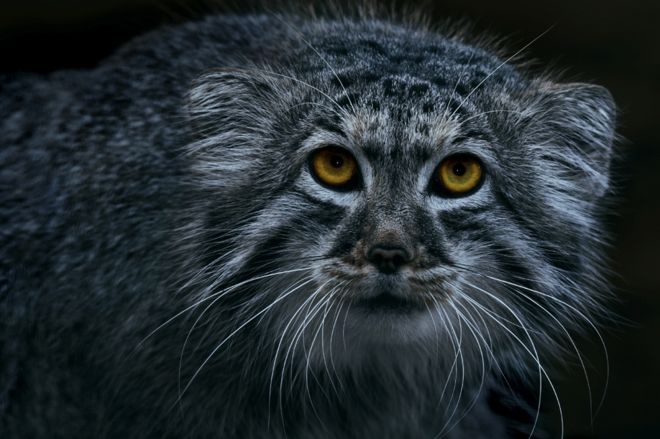September 7, 2015
Wild cat experts
from Scotland are working with counterparts in the Middle East to better
understand one of the world's rarest and most elusive cats.
David Barclay, of the Royal Zoological Society of Scotland (RZSS), has been in contact with a researcher in Iran since 2013.
In a new development, an abandoned Pallas's cat kitten could be radio-collared for the first time in Iran.
Efforts to capture images of the animals in Iran using camera traps have been unsuccessful so far.
Mr Barclay said putting a radio collar on a young cat and releasing it back into the wild could help uncover new information on the cats.
He said: "Should this happen we will be in a position to offer financial support and gain a valuable insight into the behaviour and ecology of Pallas's cats in their western range."
Mr Barclay said: "It is clear that interest in the species is growing not just in range countries but throughout the zoo world.
"It is an exciting time for Pallas's cats and as long as I am breathing I will continue to support the conservation and research efforts and wave the Pallas's cat flag."
RZSS has Pallas's cats in its collection at its Highland Wildlife Park at Kincraig near Aviemore.
They are also known as Manul, steppe and rock wildcat.
They are classed as "near-threatened", according to the International Union for Conservation of Nature and Natural Resources.
The break up of their habitats are one of the biggest threats to the species.
source


No comments:
Post a Comment